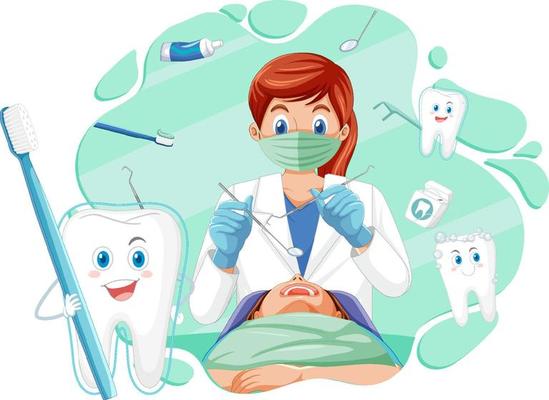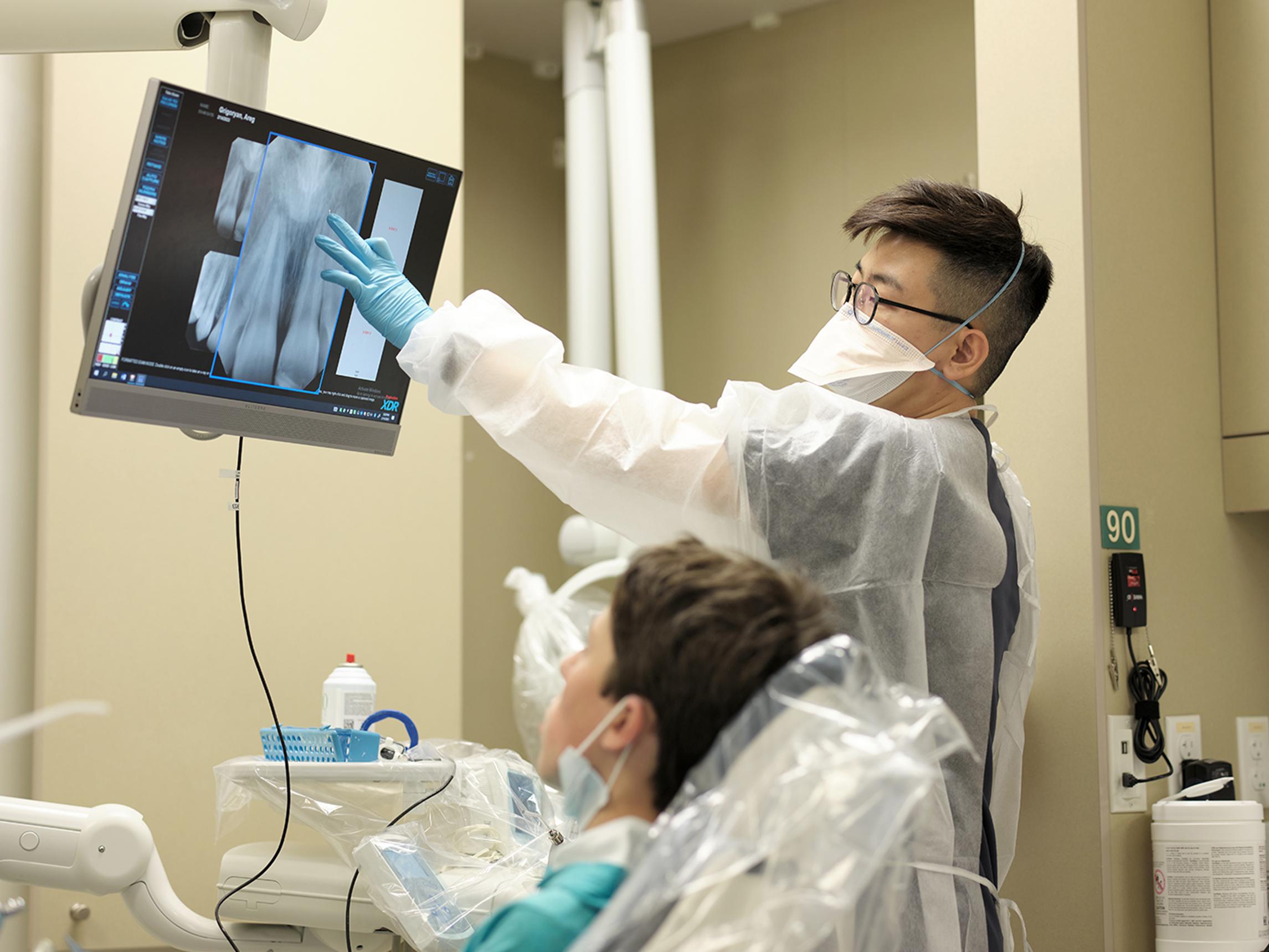The Benefits of Normal Visits to a Dentist Eugene Oregon
The Benefits of Normal Visits to a Dentist Eugene Oregon
Blog Article
A Guide to Usual Dental Problems That Require a Dental expert's Treatment
Understanding the variety of dental conditions that necessitate specialist treatment is vital for keeping optimum oral wellness. Toothaches, for instance, can be symptomatic of extreme issues such as cavities, split teeth, or abscesses, each needing details treatments like fillings or origin canals. Periodontal illness, from the early stages of gingivitis to a lot more extreme periodontitis, emphasizes the relevance of normal dental examinations and cleansings. Furthermore, affected wisdom teeth and jaw problems can introduce significant discomfort and issues. Guaranteeing timely sees to the dental practitioner can mitigate these issues properly, but what exactly are the therapies and indicators included?
Toothaches
Toothaches are an usual dental condition that can vary from light discomfort to serious discomfort, frequently suggesting an underlying issue that calls for expert interest. This pain can stem from a variety of sources, including oral cavities, cracked or fractured teeth, and dental abscesses. Each of these problems postures considerable risks if left unattended, possibly resulting in much more extreme complications.
Oral dental caries, also understood as decays, are caused by the build-up of plaque that erodes tooth enamel, leading to openings or pits in the impacted teeth. Abscesses are agonizing infections at the root of a tooth or in between the gum and a tooth, commonly resulting from extreme decay or untreated dental caries.
Reliable therapy of toothaches entails addressing the origin. This may consist of dental fillings for tooth cavities, crowns for split teeth, or root canals and antibiotics for abscesses. Early intervention by an oral professional can protect against further damage and minimize pain, guaranteeing optimal oral health and wellness.
Gum Tissue Condition
Periodontal condition, a widespread yet often neglected dental condition, materializes through swelling and infection of the gums and sustaining tissues. If left unattended, gingivitis can proceed to periodontitis, a much more severe form defined by the destruction of the supporting bone and connective tissue, inevitably leading to tooth loss.
The primary source of gum condition is microbial plaque, a sticky, anemic film that continuously bases on teeth. Poor dental health, cigarette smoking, hereditary predisposition, and certain clinical conditions, such as diabetes mellitus, can aggravate the risk of developing gum illness. Regular oral examinations are crucial for early detection and management of this problem.
Therapy for gum tissue condition ranges from expert oral cleansing and scaling to advanced procedures like origin planing and gum surgical treatment, depending on the seriousness. Maintaining great dental health practices, consisting of brushing twice daily, flossing, and using a disinfectant mouthwash, can substantially reduce the threat of periodontal condition and promote much healthier periodontals.
Cavities
Dental caries, likewise referred to as dental decays, are a typical dental condition defined by the damage of tooth enamel due to acid-producing germs in the mouth. These germs flourish on sugars and starches from food and beverages, generating acids that gradually deteriorate the enamel, resulting in dental caries development.
Early-stage cavities may not show signs and symptoms, yet as they progress, they can cause toothache, level of sensitivity to cool or warm, noticeable openings or pits in the teeth, and staining. If left unattended, cavities can penetrate much deeper layers of the tooth, visit site potentially leading to serious discomfort, infection, and even missing teeth.
Preventing cavities entails a combination of good oral hygiene methods and nutritional practices. Routine cleaning with fluoride tooth paste, flossing, and routine dental examinations are critical. Dental experts may also advise additional preventive actions, such as fluoride treatments and oral sealers, to protect teeth from decay.
Small tooth cavities can be addressed with dental fillings, which recover the tooth's framework. Much more innovative cases might need crowns or even origin canal therapy if the decay has gotten to the tooth's pulp.

Impacted Wisdom Teeth
Impacted knowledge teeth are a widespread dental problem that happens when the 3rd molars, commonly described as knowledge teeth, stop working to totally emerge or straighten appropriately within the mouth. This condition usually results from inadequate area in the jaw or an irregular development angle of the teeth. Impacted wisdom teeth can lead to a range of problems, consisting of infection, damage, and pain to nearby teeth.
When wisdom teeth become impacted, they are commonly partially erupted or continue to be totally below the gum tissue line. This partial eruption can develop a pathway for germs to go into the periodontals, causing infections that show up as swelling, pain, and also high temperature. In addition, impacted wisdom teeth can put in stress on bordering teeth, possibly causing crowding or changing.
A comprehensive dental assessment, usually involving X-rays, is important for identifying affected wisdom teeth. Therapy usually includes surgical removal, carried out by an oral specialist. The procedure aims to ease discomfort and stop additional complications, such as cysts or damages to surrounding bone frameworks. try this website Post-operative treatment is critical to make certain correct recovery and lessen the threat of infection. Routine dental examinations are a good idea to keep an eye on the problem and maintain oral wellness.
Jaw Conditions
Jaw problems, jointly called temporomandibular joint (TMJ) conditions, include a variety of conditions that impact the jaw joint and surrounding muscle mass. These disorders can show up through signs and symptoms such as pain or inflammation in the jaw, problem chewing, a clicking or popping audio when shutting the mouth or opening up, and even chronic headaches. TMJ disorders can emerge from various factors, consisting of joint inflammation, jaw injury, or habitual actions like teeth grinding or jaw clenching.
Diagnosis of TMJ disorders typically entails a comprehensive evaluation by a dentist, including a health examination of the jaw, dental X-rays, and often advanced imaging strategies like MRI or CT scans to analyze the joint's condition. Therapy alternatives differ depending on the severity of the problem. Non-invasive strategies such as physical treatment, dental splints, and medicines targeted at lowering inflammation and pain are typically first-line treatments. In a lot more serious instances, medical treatments might be needed to deal with structural issues within the joint.
Very early intervention by a dental professional is vital to avoid the development of TMJ conditions and to maintain overall dental wellness. People experiencing persistent jaw pain or disorder ought to seek prompt assessment and treatment.
Conclusion
Toothaches frequently over here show underlying problems such as cavities, split teeth, or abscesses, requiring punctual intervention. Affected wisdom teeth and jaw disorders likewise need expert focus to minimize pain and protect against further difficulties.
Oral tooth cavities, also known as decays, are triggered by the build-up of plaque that wears down tooth enamel, leading to holes or pits in the influenced teeth. Abscesses are agonizing infections at the origin of a tooth or in between the periodontal and a tooth, typically resulting from serious degeneration or unattended cavities.

Furthermore, affected wisdom teeth can put in pressure on neighboring teeth, possibly triggering crowding or shifting.
Report this page